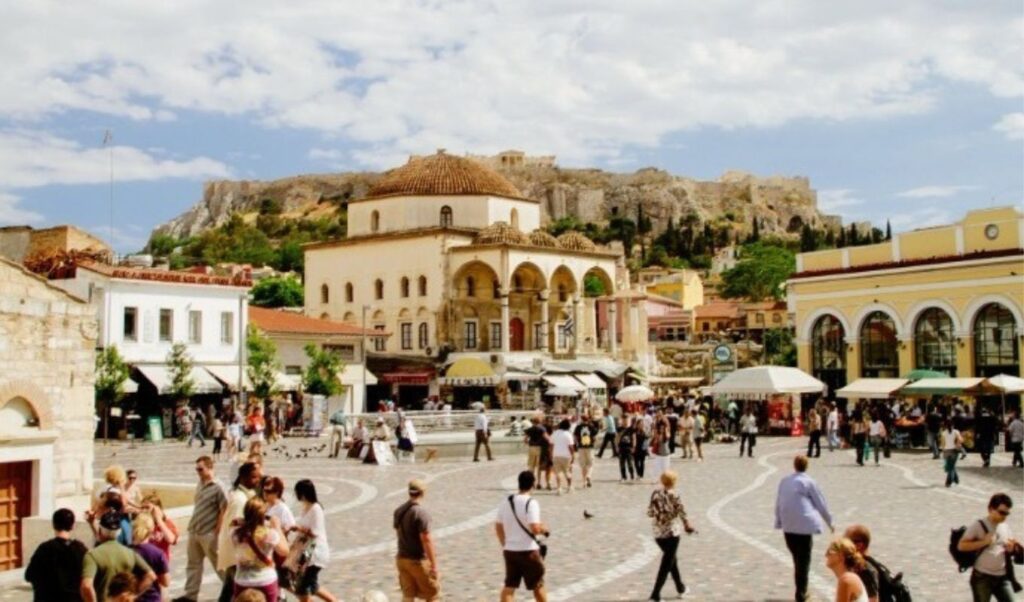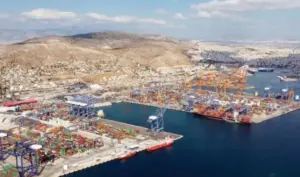In an analysis titled “Why Greece and Portugal have better economic performance than Italy, Germany and France?”, the newspaper Corriere della Sera attempts to interpret the paradox of the “former weak links” of the Eurozone.
The newspaper points out that today, Greek bond yields are three basis points lower than France’s and 18 basis points lower than Italy’s, indicating increased market confidence in Greece. Greece is now considered a safer investment destination than countries like France, Italy and Spain.
The analysis also highlights that while a well-known French supermarket chain decided to abandon Italy, it recently returned to Greece.
According to Corriere, “the troika is responsible for many mistakes made, mainly in Brussels and Berlin.” “Excessive hesitation, excessive austerity but, mainly, a wrong reading of the crisis, which blamed all the fault on the countries that were hit by it, and not on the incomplete architecture of the euro,” notes the Italian newspaper.
It questions “why the countries that suffered a humiliating and clumsy intervention in their sovereignty today have better economic performance than those who imposed various conditions on them,” recalling that in the twelve months until March, Germany showed zero growth, France around 0.6% and Italy 0.7%, while Portugal grew economically by 1.6%, Greece by 2.2% and Spain by 2.8%.
Corriere della Sera: “It’s not growth ‘doped’ by deficit”
As Corriere emphasizes: “It may be growth connected to international tourism that could suddenly decrease, but it’s not growth ‘doped’ by deficit” because “Ireland, Greece and Portugal today produce surpluses, Spain halved its deficit relative to its GDP, while Italy and France record deterioration in their balance.” Meanwhile, it’s reminded that public debt has decreased significantly in Greece and Portugal over the past decade, and considerably in Spain.
The article mentions that Greek society, however, remains still weak and impoverished, with almost exclusive dependence on tourism and shipping, while the country has not yet returned to pre-crisis economic output and more than a quarter of the population – as in Spain – lives near or below the poverty line.
“The countries that drank the bitter medicine of the troika, however, appear to be less threatened – for now – by the disorganized, anti-Western and anti-European populism that has characterized the West in recent years,” writes the Milan newspaper. It also notes that regarding public sector digitization, Italy, France and Germany took steps backward, while Spain, Portugal and Greece made progress.
“When did we see something similar in a political government in Italy, France or Germany?”
Meanwhile, analyst Federico Fubini estimates that in countries hit by the economic crisis “there was some renewal in the state mechanism,” while referring to Prime Minister Kyriakos Mitsotakis, he emphasizes:
“He comes from one of the country’s great families, but earned a business administration degree at Harvard, a master’s at Stanford and acquired working methods at McKinsey company, before rising to power at age 51.” “Spanish Finance Minister Carlos Cuerpo studied at the London School of Economics, holds a doctorate in his field and took office at 42. Before him, Nadia Calvino reached the same position at 50, after international economics studies and a top-level career in European institutions,” adds the Italian capital’s newspaper.
“When did we see something similar in a political government in Italy, France or Germany? Where ruling groups are closed or entrenched, those who rise and remain in power for decades have necessarily exercised only one skill to survive and prevail: managing to navigate within closed and entrenched ruling groups. Where these groups are open – or opened after an explosion, like the euro crisis – what you studied and what you know how to do also matters. The difference, in the end, shows,” concludes Corriere della Sera.




